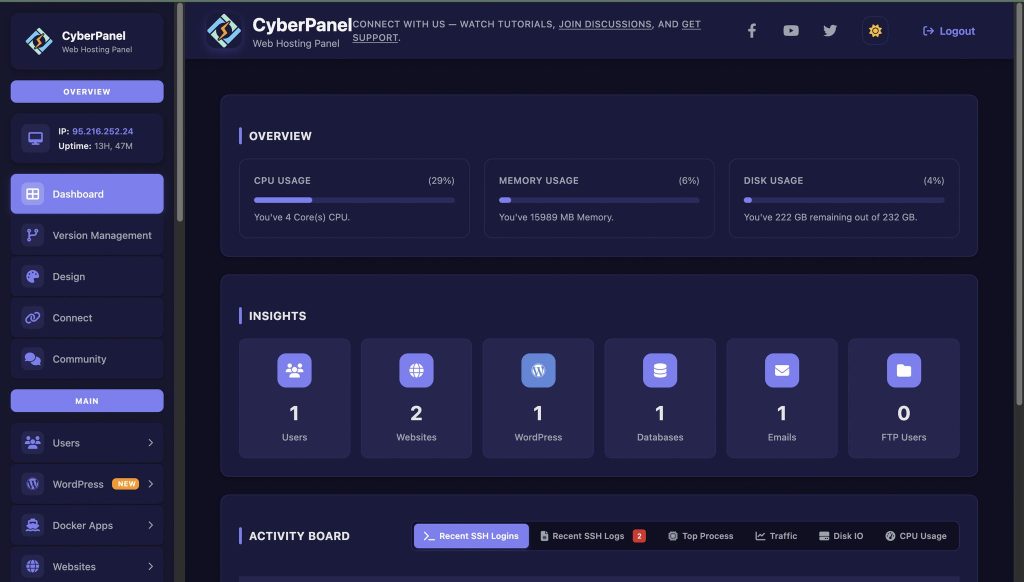You would have an idea about various Linux distributions. Among them, SUSE Linux is the most reliable one. It is a secure and enterprise-ready Linux distribution. It is well-known for its stability, performance, and long-term support. Whether you’re deploying cloud infrastructure, setting up enterprise servers, or running complex applications, SUSE Linux delivers a dependable and flexible environment.
In this article, we’ll explore what SUSE Linux is, its core features, use cases, and how it compares to other distributions.
Let’s learn together!
What Is SUSE Linux?
SUSE Linux is an open-source OS. It is based on the Linux kernel. It has been developed and maintained by SUSE. It is a German company that has been contributing to Linux since the early 1990s. There are two main variants:
- openSUSE: The free, community-driven version ideal for developers, testers, and Linux enthusiasts.
- SUSE Linux Enterprise (SLE): A commercially supported distribution optimized for enterprise environments, offering extended support, security updates, and certifications.
SUSE Linux offers robust tools for system management, virtualization, and container orchestration. Thus, it is the top choice for production environments.
Why You Should Choose SUSE Linux for Enterprise Workloads?
SUSE Linux Enterprise distinguishes itself through its enterprise-grade capabilities. This is why organizations trust it:
Get exclusive access to all things tech-savvy, and be the first to receive
the latest updates directly in your inbox.
- Security and Compliance: Built-in security features, frequent patches, and certifications provide compliance with strict regulations.
- Reliability: Long-term support versions provide reliability for mission-critical applications.
- Scalability: Works with workloads that are small servers to workloads that can scale to cloud deployments.
- Flexibility: Able to support multiple architectures and integrate with Kubernetes, Docker, and cloud service providers.
- Commercial support: The Ability to access professional support and training from SUSE makes it a logical choice for businesses.
How Does SUSE Linux Compare to Other Distributions?
| Feature | SUSE Linux Enterprise | Ubuntu Server | CentOS Stream |
|---|---|---|---|
| Stability | Excellent (LTS) | Good (LTS) | Moderate |
| Commercial Support | Yes | Optional (Canonical) | Limited |
| Security | Strong, certified | Good | Moderate |
| Use Cases | Enterprise, cloud | General use | Development |
| Management Tools | Advanced (YaST, etc.) | Basic | Basic |
How to install it?
- Download the ISO- Pick either openSUSE or SUSE Linux Enterprise on the official site
- Create a bootable drive- Use Etcher or Rufus to make a bootable USB
- Boot USB- Restart your machine and boot from the USB
- Run the installer- Follow the installer wizard for partitioning, user, and package management
- Update system- run sudo zypper update after your install to update to the latest versions
Core Features of SUSE Enterprise Linux
- YaST: A comprehensive configuration utility for everything network, storage, and system-related.
- Btrfs file system: The default file system that supports snapshots and rollbacks.
- Integrated security: AppArmor, secure boot, and audit functionalities.
- Virtualization: Integrated support for KVM and Xen.
- Cloud-ready: Direct integration with AWS, Azure, Google Cloud, and OpenStack.
Role of CyberPanel

CyberPanel is a next-gen web hosting control panel. It integrates seamlessly with SUSE Linux, allowing users to deploy websites, administer databases, and configure mail servers on a secure and reliable foundation of Linux. SUSE Linux provides CyberPanel with:
- Increased server uptime due to high SUSE stability.
- Advanced security with kernel hardening and AppArmor.
- Effective container hosting via Docker and Kubernetes in SUSE environments.
- Resource management via YaST and CyberPanel’s web-based management interface.
- All this serves as a robust stack for today’s hosting, DevOps, and web infrastructure.
Final Thoughts!
SUSE Linux is an enterprise-ready foundation for servers, cloud providers, and modern infrastructure that is stable, secure, and reliable. You can run the community version or SUSE Linux Enterprise and still be assured of reliable and performant systems that can scale according to your needs.
Are you ready for high-performing hosting and want to experience SUSE Linux? Get CyberPanel running on SUSE today and build your next project with confidence.
People Also Ask
Can I use SUSE Linux with Docker and Kubernetes?
Yes, it has strong container support, making it suitable for Docker and Kubernetes workloads.
How is Linux SUSE different from Ubuntu?
SUSE focuses more on enterprise stability, certifications, and tools like YaST, while Ubuntu is more developer-friendly and widely adopted.
Is Linux SUSE free to use?
openSUSE is free. SUSE Linux Enterprise requires a subscription for commercial support.




